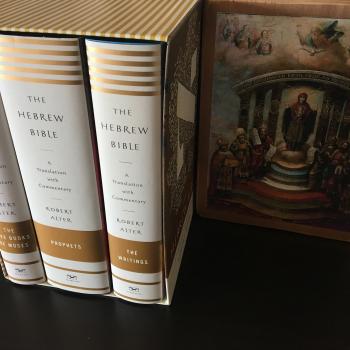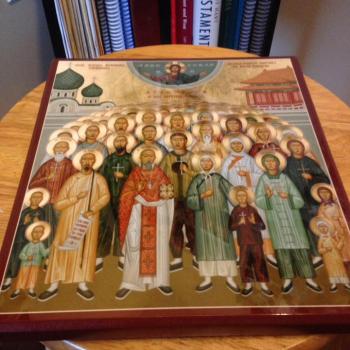Recently, the Gospel Coalition has been commenting quite a bit on legal issues. With appreciation for the recent Supreme Court decisions on gene patents and the Arizona immigration law as well as anxious anticipation for the decisions in the same-sex marriage cases (I wrote about one of them back here), I’d like to interrogate the Gospel Coalition’s conception of how evangelicals in America should engage secular legal issues.
Why talk about the Gospel Coalition?
From time to time, we talk especially about the Gospel Coalition and their friends here at Religion Ethnicity Wired because their stated mission to consolidate an ‘evangelical’ identity. This objective is fairly interesting in the context of American Protestantism (shout-out to Jim Wellman, arguably the authority on American Protestantism here in the Pacific Northwest).
They are also particularly intriguing when it comes to issues of secular legality.
Here’s what’s so interesting.
On the one hand, the Gospel Coalition, which is primarily composed of (neo)-Reformed evangelicals, often argues that legalism within the Christian life is a generally bad thing. Eschewing legalism, they believe themselves to be justified by faith in Christ’s substitutionary saving work alone. In turn, the Christian life is lived in that salvific reality also through grace alone.
Given this framework, it would seem strange for them to make any comments on secular legality. After all, if the interest of the Gospel Coalition is to promote this sort of radical grace in Christian life, one might expect them to relativize the power of the secular legal system as promoting precisely what ‘the world’ might teach as the way to life, i.e. follow these policies, and we will come to exemplify an egalitarian, democratic, liberal society that shuns discrimination for anyone. We might expect them to tell the world that their legal system promotes a sort of untruth about the nature of life and that the church demonstrates that the way to true and eternal life is a passive reception of God’s grace through Jesus Christ to create a new humanity, a people whose lives are founded on forgiveness, charity, and reconciliation, a church whose existence challenges the powers of the secular state.
But recently, as the Gospel Coalition has provided their comments on the legal system, it has become clear that they have a fairly optimistic view of the secular state. A few weeks ago, they commented that they were ‘silent’ in the face of the Sovereign Grace Ministries (SGM) lawsuit about child abuse, choosing to respect a due legal process and even protecting SGM’s co-founder, C.J. Mahaney, from allegations of a ‘conspiracy theory.’ (We at Religion Ethnicity Wired have our analysis of that situation here.)
In the latest episode in their comments about secular legality, Trevin Wax, Kevin DeYoung, and Colin Hansen take on the question of whether Christians (presumably those within a ‘neo-evangelical’ tradition) should ‘legislate their morality.’ The timing of this video seems intentionally anticipatory: even as we here at Religion Ethnicity Wired are appreciating and anticipating the Supreme Court decisions, they also seem to be quickly awaiting the rulings on same-sex marriage in Windsor v. United States and Hollingsworth v. Perry. Because evangelicals have often taken to the public sphere to express their concerns about abortion and same-sex marriage, this video is a justification of sorts for why evangelicals have done these sorts of things. Watch this video first.
I’m going to plead agnostic as to what I personally think about this video’s general message. Instead of assessing the video directly on its merits, I’m going to ask a different question: what relationship does the message of this video have with the overall work of the Gospel Coalition in consolidating a distinctively ‘evangelical’ identity?
Note well that this is not a question that comes out of thin air, as if I’m telling the Gospel Coalition to stay within their private boundaries and not to confront the secular public sphere (I happen to think that that’s a very unsophisticated understanding of secularization). My question arises from what the Gospel Coalition has set out to do: to consolidate a distinctively ‘evangelical’ identity. As one of the founders of the organization, Tim Keller, has said many times, there used to be a ‘middle ground’ in the 1950s between ‘liberals’ and ‘fundamentalists’ carved out by figures like Billy Graham, Harold Ockenga, and Carl Henry in the United States and John Stott in the United Kingdom. Because of the emergence of the Christian Right (which politicized things), the charismatic movement (which gave the movement a bit of an anti-intellectualist bent), and the ’emerging church’ movement (which has sometimes rejected evangelical doctrine), Keller and others made the case that the Gospel Coalition needed to exist to re-consolidate the ‘evangelical’ identity that used to compose what (neo)-evangelicalism used to mean. (For the record, I’m happy to affirm that this is my understanding of what’s happened to evangelicalism over the last half-century at a purely descriptive level.)
Yet this video raises questions about the very evangelical identity that the Gospel Coalition is trying to reconstruct. This is because this video demonstrates that the Gospel Coalition hasn’t managed to come up with any sort of distinctive evangelical theology for engaging the public sphere. If anything, it recycles the very mainline Protestant theologies from which the founding of neo-evangelicalism attempted to distance itself.
Check this out.
First, the main point of this video is one that the Gospel Coalition discussants tell us comes largely from the work of Michael Sandel, a Harvard political philosopher known for his seminal argument that the democratic public sphere as it currently stands isn’t actually working very well. The Gospel Coalition recommends that we watch Sandel’s Harvard course, Justice: What’s the Right Thing to Do? That’s good and fair, but the arguments that they offer come primarily from Sandel’s classic paper on ‘unencumbered selves.’ In this paper, Sandel argues against what liberal political philosopher John Rawls called the ‘original position’ in which people can bracket off their communities and their personal values and come together to find an ‘overlapping consensus.’ No, Sandel has repeatedly said, democracy itself actually has values, and if you don’t talk about them, then you’re just fooling yourself. Piggy-backing on that, Trevin Wax, Collin Hansen, and Kevin DeYoung say that all legislation has morality; the question is, what’s the morality that backs a particular piece of democratic legislation?
As a communitarian, Sandel’s work must seem to work right into the Gospel Coalition’s agenda. ‘Christians,’ we might say, are part of an intermediary community called the ‘church,’ which exists between the state and its citizens. When the state tries to legalize something that’s ‘immoral’ (say, abortion and same-sex marriage), the argument is often that the state is over-exerting its powers and breaking up the intermediary institutions that are obstructing its direct governance over citizens, institutions like the church, but also guilds, businesses, and families. Christians thus have to ‘legislate their morality’ to prevent the state from being able to take apart these mediating structures.
But here already, one must wonder–if the Gospel Coalition’s overall agenda is to reforge the evangelical consensus of the 1950s–what is so distinctively ‘evangelical’ about using Sandel’s argument for their own cause? After all, the next question–after acknowledging their indebtedness to Sandel–would be to wonder about how they see these communitarian groups fostering the work of the state. This is, of course, a point brought to us by Alexis de Tocqueville’s classic Democracy in America, where de Tocqueville argues that churches, like other voluntary associations in America, are private institutions in which people are temperamentally shaped to participate civilly in broader public conversations. If the evangelical movement stakes its central practice on engaging the contemporary social and political issues of the day, how does it conceptualize its churches and organizations in spatial relation to the state and the secular public sphere? Are evangelicals, as de Tocqueville would be happy to welcome them, simply cogs to aid democratic deliberation? Are evangelical communities spaces that encumber selves with values in this democratic debate?
In short: by taking on Sandel’s arguments at face value, what are these evangelicals conceding about their evangelical identity
This brings us to our second point: examining the whole idea of law as a ‘plausibility structure.‘ This concept is drawn from the work of Peter Berger. For those in the know (i.e. for those who were forced to read Peter Berger’s Sacred Canopy because they study the sociology of religion), this is a mind-blowingly fascinating sociological claim. In The Sacred Canopy, Berger argued that the institutionalization of religion as a worldview in medieval Europe created a plausibility structure, a sort of ‘world-consciousness,’ through which people in medieval Europe understood the world through religious lenses. It worked as a sort of sacred canopy, with religion enveloping the whole world as an overarching framework. What Berger then argues is that that plausibility structure–the sacred canopy–has been dismantled in Europe, leaving modern Europe’s philosophical bent toward religious belief in fragments.
For the Gospel Coalition to argue that secular law is a ‘plausibility structure’ is a mind-blowing theological concession. This is no mere Peter Berger argument that the plausibility structure of religion has fragmented; the implication is that religion has in fact been replaced by the secular state. For a people whose stated objective is to confront secularization as a nihilistic process, this is quite an amazing concession to the secular public sphere. It concedes that as evangelicals engage contemporary social and political issues, they must influence the state because it will always remain the state, not the church, that currently provides the new sacred canopy. This affirms exactly what Catholic theologian William Cavanaugh (and his major academic influence, historian John Bossy) calls the migrations of the holy, that the state has replaced the church in its determining of what is plausible to believe about life and death. As theorists like Talal Asad, John Milbank, José Casanova, and Charles Taylor argue, this is what secularization simply is: it’s a concession of power from the church to a state that inhabits a space that is called secular, this-worldly, exercising immanent governance over its citizens’ lives.
In short: to entertain the sociological notion of secular law as a ‘plausibility structure’ is an amazingly massive concession to secularization theory on the part of evangelicals whose stated objective is to confront the ‘secular’ with evangelical theology.
This leads to a rather ironic third point: the Gospel Coalition seems unable to come up with any plausible example of neo-evangelicals engaging secular ‘plausibility structures’ with the Gospel. Instead, as they give examples of the good that Protestant Christians have done to change the secular plausibility structures of their time, they go right to the Civil Rights Movement, arguing that ‘Christians’–and especially Martin Luther King, Jr.–led the movement to denounce racism in all its forms and to legislate desegregation even against the democratic wishes of the white majority, who were in favour of keeping Jim Crow laws.
Here’s the trouble: Martin Luther King, Jr. and all the ‘Christians’ involved in the Civil Rights Movement tended to be mainline Protestants. In case you’ve forgotten: mainline Protestants are like the archetypal nemeses of evangelicals in America because they are seen precisely as theological agents of secularization, for they allegedly concede too much to the world and not grounded enough in the literal Scriptures. If that’s the description of mainline Protestants writ large in America at the time of the Civil Rights Movement, Martin Luther King, Jr. was its poster child. (See David Garrow’s very comprehensive biography, Bearing the Cross, for details.) King was a devotee of Reinhold Niebuhr, a graduate and part-time professor at Union Theological Seminary, and an agnostic when it came to the Resurrection. You could say that perhaps King might appeal to contemporary evangelicals on the base of a shared bond with the work of Dietrich Bonhoeffer; King liked Bonhoeffer’s anti-racist streak, his appeal to the beloved community to stand up for justice, and his radical call to discipleship in the face of ‘cheap grace.’ But if that’s the case, then evangelicals would also have a lot in common with Harvey Cox, a Harvard theologian who used Bonhoeffer’s idea of ‘religionless Christianity’ in the 1960s to argue that the role of the church was to be the vanguard of secularization, exorcising the forces of religion and superstition from the city so that urban policies could be more justly conceptualized (hey, sounds kinda like the real King). Appeal to King as a shining ‘Christian’ example of evangelical engagement, and the irony is that you’re way out of evangelical territory into archnemesis-land.
Now this is a particularly dicey issue, particularly as the whole point of neo-evangelical theology was not only to be a middle ground between liberals and fundamentalists. Looking back at Harold Ockenga’s 1948 Fuller convocation address that arguably launched the neo-evangelical movement, he straight-up bulldozes a wedge space for evangelicals in compete negative contrast to liberals, ecumenists, neo-orthodox theologians, Roman Catholics, and secularist practitioners who all apparently do not believe the Bible and its ability to be literally applied to contemporary life. Of course, I understand fully that figures like Billy Graham collaborated with Catholics and the liberal mainline in his evangelistic crusades. But collaboration is not complete identification, and this is particularly puzzling for the Gospel Coalition, an organization that seeks to restore the very distinctive evangelical identity that was seen in contrast to the very things for which Reinhold Niebuhr, Paul Tillich, and the rest of the gang at Union stood.
Indeed, it’s arguable that in the context of the Civil Rights Movement, it’s very difficult to find a true-blue neo-evangelical standing up for the Civil Rights cause. (Heck, it was hard even to get Reinhold Niebuhr to stand up for the cause.) This is because, unlike the extremely tame version of the Civil Rights Movement presented to us in the video, the Civil Rights Movement was not just about racial justice, but about economic justice and political liberation. King was not just a guy with some dream that little white kids and little black kids would all play together. He protested the Vietnam War for disproportionately drafting African Americans, taking out an already-racist conflict with Vietnamese Communists on the most economically and racially marginalized population in the United States. He denounced poverty in Chicago, alleging that Mayor Daly’s policies were causing an increasing wealth gap. When he was assassinated in Memphis, he was on a campaign to fight for the dignity of sanitation workers, and when he said that he had been to the Mountaintop and seen the Promised Land, he was talking about economic equality in America where people regardless of race, class, and employment would all be treated with humane dignity. Oh, yes, King was all for changing the secular plausibility structures of his time–into one that would favour wealth redistribution and non-exploitative labour practices.
Find me a neo-evangelical who got behind this political economic agenda. (And no, Richard John Neuhaus does not count. He was part of the mainline. And no, Billy Graham doesn’t count. To co-opt King’s mountaintop speech in a Lausanne appeal to evangelize the world is not the same thing as getting behind King’s political economic agenda.)
In short: not only has the Gospel Coalition seemed to give an amazing concession to the ‘secular’ by invoking plausibility structures, but it proceeds to give away also a distinctive evangelical identity by basically saying that the mainline Protestants against whom they have long stood were actually right.
And thus, our fourth and final point: the only way forward for the Gospel Coalition in this video is to read all Protestants through the lens of an evangelical identity, regardless of whether the people they discuss self-identify as evangelical or not. Here’s an example: the discussants bring up an illustration of an apparently awful seminary classroom where the consensus was that abortion should be legal for the sake of preaching the Gospel. While the seminarians might be privately against abortion, they make the case that they should be for the legalization of abortion in order to advance their evangelistic efforts. If they are not seen to be ‘relevant,’ the discussants allege, that’s the kiss of death for their evangelistic strategies.
Pardon me, but that sounds to me like an evangelical imposition on a mainline Protestant classroom. This is because it’s in evangelicalism that everything is read through the lens of Gospel relevance and the maximization of evangelistic impact. But this is a misrepresentation of liberal and neo-orthodox forms of mainline Protestantism altogether. The point in these more progressive movements isn’t an attempt to be ‘relevant’ in order to spread the message of the Christian gospel. It is that the gospel compels Christians to exit the confines of the church and to challenge the secular social and political structures of the world. Let’s come back to liberal theologian Harvey Cox. His central thesis is that the church should be the vanguard of secularization and the exorcist of modern malaises in the city. In some versions of these views, abortion should be legalized in order a) to oppose unjust patriarchal structures that legitimize forms of male violence against women that cause them to be pregnant without a choice and b) to prevent abortion from going under the regulatory radar of the state. In turn, theologians and pastors thinking within this vein might hold for themselves personal views about the sanctity of life, but they might argue that abortion should be legal in the secular realm in order to empower the state to enact certain forms of justice.
Again, I am pleading complete agnosticism regarding my view of abortion. I am instead challenging the misrepresentation of pro-choice positions because misconstruing those with whom one disagrees is a surefire way to end a conversation. To thus state that these are the proper terms of the debate is not to endorse one view over another. Indeed, reframing the debate more fairly might enable more creative pro-life views to emerge. Indeed, theologians like Stanley Hauerwas have criticized these pro-choice positions for being overly state-centric and have called for pro-life positions that emphasize the church as a community that welcomes children. So too, Joseph Cardinal Bernardin’s classic ‘consistent ethic of life‘ has shown that the ideological divisions between ‘pro-lifers’ who are supposedly politically conservative and ‘pro-choicers’ who are supposedly politically liberal make no sense in the church’s witness to the state. Instead, a consistent ethic of life would prescribe both opposition to abortion and opposition to war, capital punishment, ecological destruction, and policies that widen the wealth gap.
Here’s my point: the Gospel Coalition is not well-served by misrepresenting their opponents through an evangelical caricature. Its arguments would be much more effective if they could articulate a sophisticated summary of what precisely constitutes their disagreement with mainline Protestants. As it stands, these caricatures seem to suggest that the disagreement is over a ‘straw man’ and that the differences are not as strong as the labels would suggest.
And here’s the larger point: While it sounds like these Gospel Coalition members are reading their generic ‘Christian’ views as essentially ‘evangelical,’ there is not a single distinctive neo-evangelical point made in the entire video. In fact, the reasoning behind everything in the video is pretty much indebted to good old mainline Protestantism, the kind of which Reinhold Niebuhr and Peter Berger would be proud, a variant that might trouble Harvey Cox but would still be vaguely recognizable to him.
Like I said, then, I’m going to plead agnostic on the question of whether ‘Christians should legislate their morality.’ That’s a question loaded with so much theoretical baggage to unfold before one can give a straight answer. Instead of asking this question, let me suggest a breakdown of this question:
- How might one articulate a distinctively evangelical view of secular legislation and the state’s due legal process?
- What does ‘morality’ mean? Does it include economic justice? Or does it revolve solely around intimate issues of the body? And why (for evangelical reasons, of course)?
- To what extent does this question bring together evangelicals and mainline Protestants, instead of attempting to assert distinctive identities over against each other?
This final question finally brings us back to the whole notion of identity politics that we discussed in the previous post. As we saw in the previous post, racial and ethnic identity politics have become a source of some considerable debate in Vancouver’s public sphere. What we said there was that those sorts of identity politics have often been fueled by market fundamentalism. What I am wondering today is that in the landscape of North American Protestantism, what is the motivation for the Gospel Coalition in propagating a distinctive evangelical identity politics? What, really, is the point? If their main theological points are drawn largely from their mainline Protestant nemeses, what is stopping a full rapprochement within American Protestantism itself?
I realize that in my last post, I said that I would talk about private interests in the public sphere today. It may not seem that way, but I think I’ve found a back door in.
It’s this: whatever this evangelical politics of identity is, its politics focus on protecting a sort of private sphere. In other words, the morality that these evangelicals are bringing to the table is one that conceptualizes the public good as the protection of the individual rights to thrive in one’s personal life, whether in a heteronormative family or in the womb as an unborn child. I am categorically not rejecting this contribution as without its merits; indeed, in some ways, advocating along this line of reasoning is a great public defence against state totalitarianism. These voices must be heard. But the point here is that these voices must also be articulate. As it stands, the video pretends that all American Protestant Christians are the same, that the Gospel Coalition doesn’t have a stake in constructing a distinctive evangelical identity, and that all evangelicals agree about how the secular public sphere should be theologically conceptualized (what of, say, Sojourners?). This needs to stop. Instead, we would all be better served if the Gospel Coalition clearly articulated that their version of evangelical morality is conceptualized as a private morality that they are legislating in the public sphere. And from there, they can enter into a genuine and generous debate with their fellow evangelical brothers and sisters, the mainline Protestants who have so influenced them, and the secular public sphere that they seek to influence.
In short: we are categorically not advocating that the Gospel Coalition pack its bags and stop trying to construct an evangelical identity. That is a theological debate that should probably be kept in-house within ecclesial circles. Instead, we are suggesting that by opening itself to a close examination of its own theoretical assumptions through a broader public conversation, the Gospel Coalition will be able to articulate a strongly distinctive evangelical identity, one that perhaps does not need to be antagonistic to other views when they realize that there is more common ground than sources of ideological division between evangelicals and the conversation that they want to engage.
For my part, I promise to have more on the politics of privacy in the not-too-distant future. Stay tuned.












